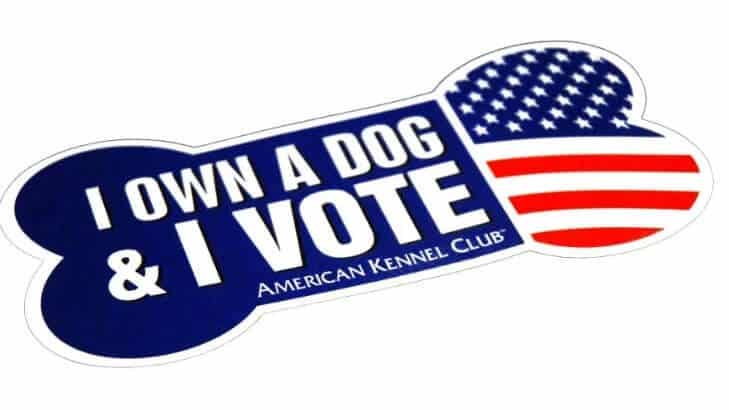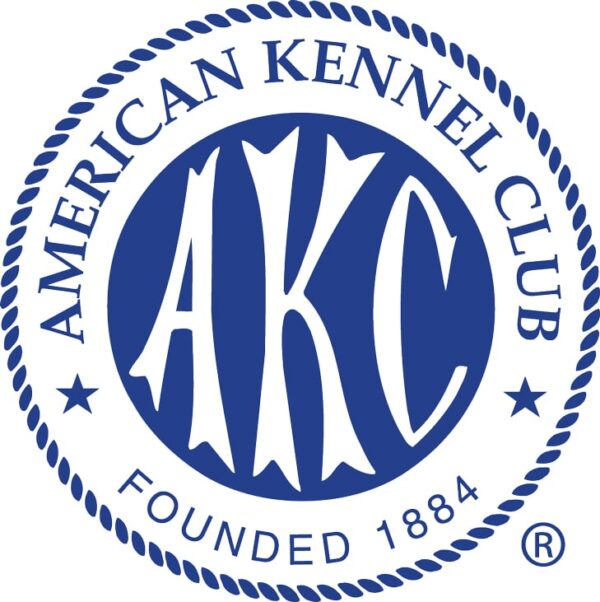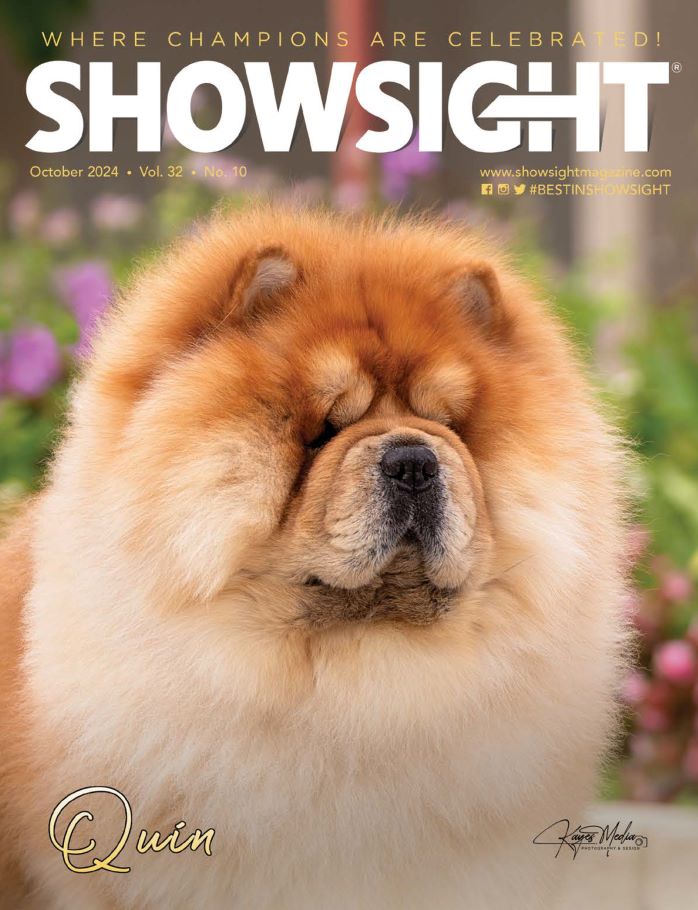All Politics Is Local: Easy Ways to Make a Difference for Dogs in Your Community
In November, local communities throughout the country held elections for county and local officials. Only four states (Louisiana, Mississippi, New Jersey, and Virginia) held elections for state legislatures. “Off year” elections like 2023 typically capture less public and media imagination, and voter turnout can struggle to reach even half the rate achieved in presidential election years.
The irony is that local elections—the ones with the greatest impact on the daily lives of dog enthusiasts—are also the ones that the fewest people participate in.
Local elections and other local engagement represent a missed opportunity—and the greatest opportunity for dog lovers to advocate for dog- and breeder-friendly laws. For dog owners and enthusiasts, all politics truly is local.
Over the past several months, the AKC Government Relations team has tracked an increase in efforts by local governments on a wide range of issues impacting responsible dog owners and their dogs. The most prominent and troubling efforts include new mandatory spay/neuter proposals and efforts to restrict intact dog ownership and breeding. In each case, engagement by local clubs, dog enthusiasts, and breeders has been crucial in protecting the future of purebred dogs in these communities.
HERE ARE TWO CURRENT EXAMPLES
Las Cruces, New Mexico, recently held a work session to discuss a mandatory spay and neuter ordinance. In response, local clubs are stepping up to educate their mayor and the city council about the harm this ordinance could cause for canine health, responsible breeders, and dog enthusiasts. These education efforts can often lead to long-lasting relationships that create opportunities for clubs to shape canine policy in their communities.
In Kern County, California, a proposal before the local board of supervisors would overhaul dog licensing—and require mandatory spay/neuter for many county residents. Here again, local area club members and dog enthusiasts, along with the California Federation of Dog Clubs, got involved early (and often!) in the process to help push back against misinformation offered by the proposal’s proponents. They have attended numerous local meetings, written letters, and held meetings with elected officials to shape the proposal in a much more dog owner-friendly way.
Developing relationships with local lawmakers is critical to preventing bad dog laws. Educating candidates about the value of responsible dog owners, enthusiasts and breeders (https://www.votervoice.net/AKC/campaigns/94533/respond) and participating in local elections is an easy way to make an impact. The run up and immediate aftermath of an election—when lawmakers are most available to their constituents—also offer a valuable opportunity for clubs to introduce themselves and develop a productive relationship with lawmakers and candidates.
HERE’S AN EASY WAY TO MAKE A DIFFERENCE—BEFORE BAD LAWS ARE INTRODUCED
Considering local elections were held across the country in November, and most state legislatures are adjourned until 2024, now is a perfect time for individual dog owners, club members, and clubs to get in touch with newly elected and re-elected local lawmakers.
- Introduce yourself (and your club). The first step is to let local lawmakers know who you are. Always be on the lookout for opportunities to meet lawmakers at community events and office hours designed to foster dialogue between lawmakers and their constituents. Often, you can find this information on their social media pages. To further aid in these introduction efforts, you can find a sample introductory letter in the tool box in AKC’s Legislative Action Center at: www.akcgr.org (https://cdn.akc.org/Government_Relations/Club_Introduction_Letter.pdf?_ga=2.128189007.2145456587.1525696617-1422814510.1521724924), which you can send or use as a guideline in your introductory conversations.
- Contact lawmakers via phone or email at their office and see if you can schedule an appointment or arrange a telephone call to introduce yourself and explain your willingness to serve as a resource for any issues related to responsible dog ownership, breeding, and issues related to zoning. The vast majority of elected officials are not dog experts. They rely on their constituents for advice. If we as enthusiasts and breeders do not share our expertise, lawmakers are forced to rely on the resources that are offered them… often by animal rights groups. Check your local community and county’s websites for contact information. If it’s not listed, you can also ask the Clerk’s office for the best way to reach out to local officials.
- Invite them to shows and events. This is a great way to introduce lawmakers to the fun of our sport and the importance of supporting responsible breeders and hobbyists. Let them know how dog events and responsible dog owners and breeders benefit the community. Consider giving them a tour—or better yet, allow them to present a Best in Show or another award. If your club is participating in local community activities and events, be sure to let your local lawmakers know. AKC GR can help you with all aspects of this, from inviting the lawmakers, to tips on communicating, to appropriate resources and materials to provide, and more.
- Let them know of your club’s good work in the community. When communicating with lawmakers, AKC GR always lets them know if there are AKC clubs in their district/city/county. You can help to strengthen this talking point by letting them know what you do in the community. If you are offering a training class or CGC certification, write your local lawmaker and let them know. Did you donate money for K9 vests or participate in the Adopt a K9 Cop Program? Let your lawmakers know and let your local media know too. This demonstrates your value to the community and also, again, shows your expertise on local dog issues.
- Volunteer at your local shelter. Not only is this a great community service, but it shows your local animal control officers that you care about these dogs and want to be a part of the solution. Often, too, local proposals are brought forward by local animal control directors and officers. By having a relationship and working with them, you may be able to better learn about these concerns and offer your expertise before a negative proposal is introduced.
- Sign up for local boards and advisory commissions. Many counties and communities have an animal advisory board or commission. Consider applying for open seats on these boards to ensure the voice of local clubs and hobbyists are heard. If there aren’t any open seats or animal boards in your area, consider other boards or commissions that deal with issues of interest to you. Involvement in your community helps to develop essential relationships with leaders who can impact your ability to breed, own, and show dogs.
- Attend or designate someone to attend regularly scheduled public meetings. Consider attending general council/board meetings as well as key committees, and taking the time to introduce yourself to the elected officials and the appropriate staff (manager, admin assistant, etc.) so that you become a known entity. They are generally approachable before and after meetings.
- Before an election, send local lawmakers a survey about their position on animal issues. Let them know that your club and community take these issues seriously and that responses will be shared with your club. Visit the Legislative Action Center toolbox for sample surveys and election guides. Support the AKC Political Action Committee, and if you are working with a candidate worthy of strong support, contact the AKC PAC (www.akc.org/pac) to learn how the PAC can help to elect dog-friendly candidates.
The AKC’s GR Legislative Action Center and Toolbox (https://www.votervoice.net/AKC/Home) provides a wide range of resources, including outreach planners, policy and issues analyses, sample letters, fact sheets, and more. When local issues do arise, AKC Government Relations is here to help you—but we can’t do it without you! With thousands of local communities across the country, local clubs and dog owners play a key role in working together with AKC GR and in being vigilant in monitoring for proposals impacting dog owners.
HOW YOU CAN HELP AKC STAY INFORMED ABOUT LOCAL PROPOSALS
- Monitor local media and follow your lawmakers on social media. Keep an eye out for animal incidents in your community. These incidents are often the catalyst for changes to the law. In some cases, you may also find local stories about the development of these ordinances in local media and on social media.
- Regularly check city and county websites. Most cities and counties have websites where they post meeting agendas. Learn when the council or commission meetings are held and find out when agendas are posted. Also, check to see if your city or county has an animal advisory committee and check those agendas as well. When you learn of an issue, contact AKC Government Relations and we can help you with analysis, talking points, and spreading the word to other local clubs and breeders.
AKC Government Relations is happy to help you in communicating with lawmakers and developing policy solutions. Whether its participating in educated voting for local elections, supporting the AKC PAC, or participating in your community, your engagement is crucial to protecting the future of purebred dogs and dog events in your community.
Visit AKC’s Legislative Action Center at www.akcgr.org. The Toolbox, Blogs, and Key Issues tabs are updated frequently with new resources. You can also always contact AKC GR at: [email protected]. We are glad to work with you to be effective advocates in your community on behalf of our dogs and our sport.










